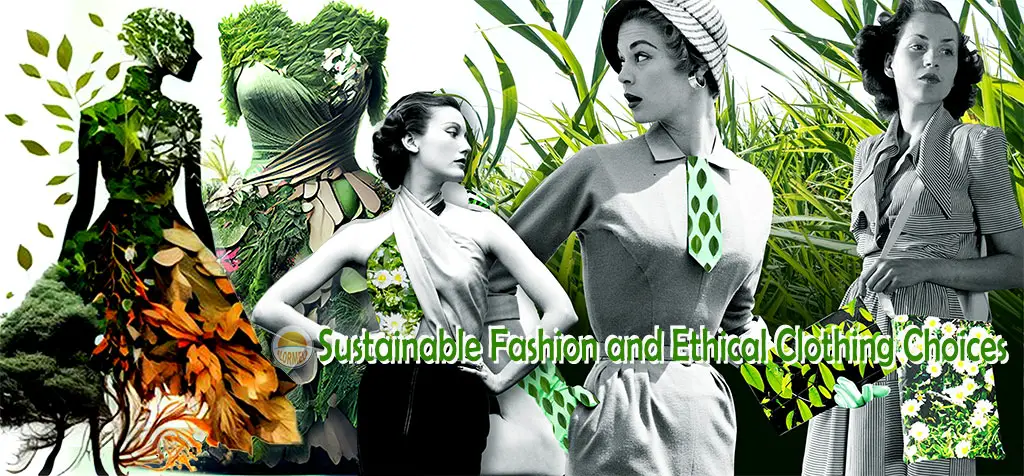In recent years, the fashion industry has undergone a paradigm shift, with an increasing emphasis on sustainability and ethical practices. Sustainable fashion encompasses a holistic approach that addresses the environmental, social, and economic impacts of clothing production and consumption.
By making conscious choices and opting for ethical clothing, consumers can contribute to a positive change that not only preserves the planet but also uplifts workers in the supply chain. This article explores the significance of sustainable fashion and highlights how ethical clothing choices can shape a brighter and more responsible future.
The Environmental Impact of Fashion
The fashion industry is one of the largest contributors to environmental degradation. From the excessive use of natural resources, such as water and land, to the pollution caused by toxic chemicals and textile waste, the production and disposal of clothing have far-reaching consequences. Sustainable fashion seeks to minimize these impacts by promoting eco-friendly practices like using organic and recycled materials, reducing water and energy consumption, and adopting circular approaches that prioritize recycling and upcycling.
Ethical Practices and Workers' Rights
Beyond environmental concerns, the fashion industry has long faced scrutiny for labor exploitation and unsafe working conditions. Many clothing brands have outsourced production to low-wage countries, where workers often endure long hours, low pay, and hazardous environments. Ethical clothing choices prioritize fair labor practices, ensuring that workers receive fair wages, safe working conditions, and access to social benefits. Brands committed to ethical fashion embrace transparency and actively engage in partnerships that uplift local communities.
The Rise of Sustainable Fashion Brands
Over the past decade, an increasing number of sustainable fashion brands have emerged, challenging the conventional norms of the industry. These brands prioritize eco-friendly materials, fair trade practices, and transparency, creating a positive impact throughout the supply chain. They often employ innovative techniques, such as 3D printing, digital design, and on-demand manufacturing, which minimize waste and maximize efficiency. By supporting these brands, consumers can drive change and inspire the broader industry to adopt sustainable practices.

Conscious Consumerism: Making Ethical Choices
As consumers, we hold the power to drive change through our purchasing decisions. By becoming conscious consumers, we can demand transparency from brands, seek out sustainable alternatives, and support ethical clothing choices. Here are a few ways we can make a difference:
a) Prioritize quality over quantity: Choose well-made, durable garments that will stand the test of time rather than succumbing to the allure of fast fashion trends that lead to excessive consumption and waste.
b) Opt for sustainable materials: Look for clothing made from organic fibers, such as organic cotton, hemp, or bamboo, which reduce the environmental impact of production and are often free from harmful chemicals.
c) Embrace secondhand and vintage fashion: Extend the lifecycle of clothing items by exploring thrift stores, consignment shops, or online platforms that promote the reuse of garments. This not only reduces waste but also adds unique character to your wardrobe.
d) Support ethical brands: Research brands that prioritize sustainability and ethical practices. Look for certifications like Fair Trade, GOTS (Global Organic Textile Standard), or B Corp that ensure social and environmental responsibility.
e) Educate yourself: Stay informed about the fashion industry's impact and the latest sustainable practices. Engage in conversations, follow ethical fashion influencers, and encourage others to make conscious choices as well.
Sustainable fashion and ethical clothing choices are crucial steps towards a more responsible and compassionate industry. By embracing sustainability, we can minimize the environmental impact of clothing production and protect our planet for future generations. Simultaneously, by supporting ethical practices, we can ensure that workers in the fashion supply chain are treated fairly and empowered. As consumers, we have the power to transform the fashion industry, fostering positive change and nurturing a more sustainable and ethical future for all. Let us take this opportunity to make a difference through our choices and inspire others to join the movement towards a more conscious fashion industry.

